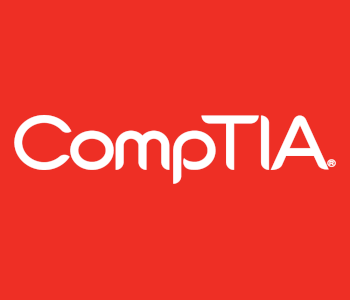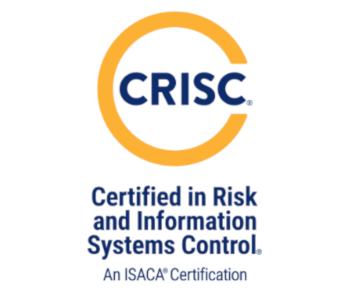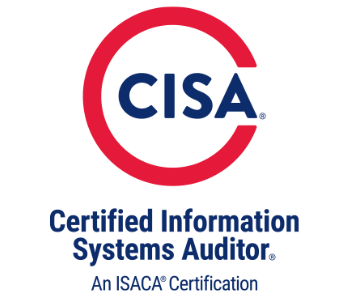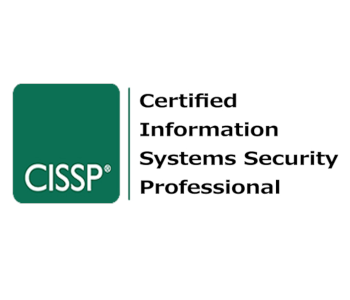5 Best System Analyst Certifications
The role of a systems analyst is a diverse and often evolving one, branching into various areas of both computing and business and tackling a variety of different problems. As such, it can often be difficult to figure out which certifications to obtain in order to stand out amongst other candidates.
For this reason, we have sought to solve this issue by assembling a list of the best systems analyst certifications available. Our list also includes a comprehensive breakdown of each certification, giving you a better understanding of the specific role each of them is designed to train you for. Therefore, if you are interested in becoming a systems analyst but need more information as to which area of the profession to pursue, stick around, as the following information will likely be of use to you.
Top System Analyst Certifications
| Certification | Topics | Support | Exam Details |
|---|---|---|---|
| CompTIA Linux+ |
|
|
Price: $329 No. of Exams: 1 Number of questions: 90 Duration: 90 minutes Passing percentage: 80% |
| CompTIA A+ |
|
|
Price: $226 No. of Exams: 2 No. of Questions: Max 90 Duration: 90 minutes per exam Passing Score: 75%, 77% |
| ISACA: CRISC (Certified in Risk and Information Systems Control) |
|
|
Price: $575 (Members), $760 (Non-members) No. of Exams: 1 Number of questions: 150 Duration: 4 hours Passing Score: 56% |
| ISACA: CISA (Certified Information Systems Auditor) |
|
|
Price: $440 (Members), $625 (Non-members) No. of Exams: 1 Number of questions: 150 Duration: 4 hours Passing Score: 56% |
| (ISC)2: CISSP (Certified Information Systems Security Professional) |
|
|
Price: $699 No. of Exams: 1 Number of questions: 250 Duration: 6 hours Passing Score: 70% |
1. CompTIA Linux+

The CompTIA Linux+ certification is perfect for any systems analyst needing to learn about the Linux operating system and how it can be used to build robust, reliable systems for enterprise. Systems analysts are often expected to have a good working knowledge of Linux, due to its versatility and stability, making this certification a great option for anyone lacking experience in this area.
Topics
The topics covered in this certification include hardware and system configuration, Linux troubleshooting and diagnostics, system operation and maintenance, and automation and scripting. The certification also covers security in relation to the operating system, meaning you will learn how to keep Linux systems secure as well.
This makes the Linux+ certification rather comprehensive in its approach, providing you with plenty of knowledge and skills that allow you to build suitable Linux systems. You will also be able to use these skills in other areas such as a more security-focused role, as a lot of cybersecurity professionals use Linux over other operating systems.
Support
CompTIA is one of the best providers when it comes to support resources, offering various e-learning materials, video training, study guides, instructor-led training, and exam preparation information. The organization also provides interactive labs designed to give you hands-on experience with the skills you are being taught.
This variety of options is great to see from a CompTIA, as it means that even those with certain learning difficulties should be able to study the material, provided the options suit their needs. It also shows that CompTIA is trying to provide value for money where possible, which is again beneficial considering how expensive some certification programs are.
Exam Details
The exam for this certification has a total of 90 questions that need to be completed in a time limit of 90 minutes, essentially giving you 1 minute per question. To pass the exam you will also need to score at least 720 out of 900 marks, which is equivalent to 80%. Clearly, this indicates that the exam is rather difficult to pass, meaning a sufficient amount of revision will likely be required.
As for the price of the exam, it will set you back $329 unless you are able to receive professional funding. However, any study materials you require may also cost extra.
For more information on this certification, visit: https://www.comptia.org/certifications/linux
| Topics | Support | Exam Details |
|---|---|---|
|
|
Price: $329 No. of Exams: 1 Number of questions: 90 Duration: 90 minutes Passing Score: 80% |
2. CompTIA A+

The CompTIA A+ is perfect for anyone looking to build a strong foundation as a systems analyst, as it covers many different topics related to the role. The certification is also well-regarded in the industry, making it a great inclusion to your resume.
Topics
The A+ certification tackles a broad set of topics, including baseline security skills, operating systems configuration, and troubleshooting of core service and support challenges. The program also looks at how to support basic IT infrastructure and networking, as well as how to configure device hardware, and implement basic data backup and recovery methods.
This makes the A+ certification a lot more generalized than some of the other options in this guide. However, this is actually a good thing for systems analysts, as they are required to have knowledge in a number of different areas of computing.
Support
As a CompTIA certification, A+ includes the same support resources as the Linux+ certification. This means you can benefit from video training, study guides, and plenty of exam preparation material, as well as instructor-led training.
You will also have access to interactive labs, giving you the opportunity to put your knowledge into practice. This should provide you with a good platform to get yourself job-ready. However, more training will likely be required for the specific role that you go for.
Exam Details
The A+ certification includes 2 exams, each lasting for a duration of 90 minted, and including 90 questions. This means that, once again, you will have an average of 1 minute to complete each question. However, you will also be able to gain time for harder questions by completing the easier ones more quickly.
The passing scores for each exam vary slightly, with the 220-1001 exam requiring a score of 675 out of 900, and the 220-1002 exam requiring a score of 700 out of 900. This means you will need to maintain a high level of consistency across both exams. However, the individual pass scores are slightly lower than many of the other exams discussed in this guide.
The total cost of the exams is $226, which is very reasonable considering you are paying for multiple exams. Like with any certification, however, there is a chance that any extra learning resources will cost extra, so be sure to factor this in before making the investment.
For more information on this certification, visit: https://www.comptia.org/certifications/a
| Topics | Support | Exam Details |
|---|---|---|
|
|
Price: $226 No. of Exams: 2 No. of Questions: Max 90 Duration: 90 minutes per exam Passing Score: 75%, 77% |
3. ISACA: CRISC (Certified in Risk and Information Systems Control)

The CRISC certification takes a slightly different approach to the aforementioned option on this list, focusing on a specific area of computing useful to systems analysts. This makes CRISC a decent option to supplement your learning. However, we don’t recommend it as your only certification if you plan to become a systems analyst, due to the versatility of the role.
Topics
The CRISC certification covers a few distinct topics which are all related to risk assessment and response. The topics include IT risk identification, IT risk assessment, risk response and mitigation, and risk and control monitoring and reporting.
As you can see, these topics won’t be useful to all systems analysts. However, if you are looking for a role more centered around the security aspects of a system, CRISC remains a good option, due to its focus on this area.
Support
The support available for this certification includes various study materials, as well as instructor-led training, and on-site chapter reviews. You are also given access to an exam preparation community, allowing you to share knowledge and ideas with your peers.
The on-site chapter review could prove to be particularly useful, as they include on-demand video training sessions, as well as interactive modules and case-study activities. The instructor-led training is also a great option if you need extra guidance, as it allows you to communicate with an expert via a virtual classroom.
Exam Details
The exam for this certification includes a total of 150 questions that need to be completed in a duration of 4 hours. This gives you an average of 1.6 minutes per question. However, this can of course be increased by quickly working through easier questions.
To pass the exam, you will need to score at least 56%, which is quite reasonable compared to many of the other exams in this guide. However, this lower passing score could be due to the exam including comparatively harder questions.
The CRISC exam costs $440 for members and $625 for non-members. This is probably so that ISACA can entice learners to take more of its own certifications, rather than go to other organizations. This is a good deal if you plan to take a number of ISACA certifications. However, considering it can cost between $130 and $200 per year to be a member, we don’t recommend it if you only need a single certification, as the value simply isn’t there.
For more information on this certification, visit: https://www.isaca.org/credentialing/crisc
| Topics | Support | Exam Details |
|---|---|---|
|
|
Price: $575 (Members), $760 (Non-members) No. of Exams: 1 Number of questions: 150 Duration: 4 hours Passing Score: 56% |
4. ISACA: CISA (Certified Information Systems Auditor)

The second ISACA certification in this guide is the CISA certification. This certification is intended primarily for systems auditors. However, due to the sometimes overlapping responsibilities of both systems auditors and analysts, it is still a decent option to consider.
Topics
The CISA certification includes a variety of different topics such as information systems auditing processes, governance and management of IT, and information systems acquisition, development, and implementation. Other topics also include information systems operations and business resilience, and the protection of information assets.
As you can see many of these topics are useful to systems analysts as knowledge in these areas will not only allow you to build more robust systems but also more business-friendly systems as well. Having this certification will also allow you to transition into the role of an auditor at a later date, should you wish to do so.
Support
The support options for this certification are much the same as what is available for the CRISC certification. This means you are once again presented with the option of various study materials, as well as on-site chapter reviews, instructor-led training, and an exam preparation community.
Exam Details
The CISA exam, like the CRISC exam, includes 150 questions, which need to be completed within 4 hours, effectively giving you 1.6 minutes per question. The passing score is also the same, meaning a percentage of 56% will be required in order to obtain the certification.
The cost of the exam is $440 for non-members and $625 for members. Once again, we only recommend becoming a member if you plan to take a number of ISACA certifications, as the membership fee is somewhat steep.
For more information on this certification, visit: https://www.isaca.org/credentialing/cisa
| Topics | Support | Exam Details |
|---|---|---|
|
|
Price: $440 (Members), $625 (Non-members) No. of Exams: 1 Number of questions: 150 Duration: 4 hours Passing Score: 56% |
5. (ISC)2: CISSP (Certified Information Systems Security Professional)

The final certification in this guide is again geared towards those with an interest in security, giving systems analysts an opportunity to adopt a security-focused approach to system design. This is something that is becoming ever more important hee days, as businesses look to become ever more reliant on technology to communicate.
Topics
The CISSP certification focuses on a variety of topics, such as software development security, security and risk management, asset security, security architecture and engineering, and communication and network security. The course also covers identity and access management, as well as security assessment and testing, and security operations.
With these topics under your belt, you should be able to confidently design and implement secure systems for enterprise. However, you may still want to obtain a more generalized qualification to further your credentials as a systems analyst.
Support
The support options for this certification include access to an online instructor, private on-site training, and classroom-based training. Clearly, this doesn’t quite compare to some of the other support resources discussed in this guide. However, you should still be able to sufficiently prepare yourself for the exam with what is available.
Exam Details
The exam for this certification includes 250 questions and runs for a total of 6 hours. This means you have approximately 1.2 minutes to answer each question, which could prove to be rather difficult considering the volume of questions and the topics that are covered.
To pass the exam, you will need to score at least 70%. This isn’t the highest passing threshold we have seen in this guide. However, due to the extensive number of questions, you will likely need to revise heavily in order to pass.
The exam also costs $699, making it one of the more expensive options in this guide. On top of this, any extra resources may also cost extra, so we recommend subsidizing the cost if at all possible.
For more information on this certification, visit: https://www.isc2.org/Certifications/CISSP
| Topics | Support | Exam Details |
|---|---|---|
|
|
Price: $699 No. of Exams: 1 Number of questions: 250 Duration: 6 hours Passing Score: 70% |
Contents
- Top System Analyst Certifications
- 1. CompTIA Linux+
- Topics
- Support
- Exam Details
- 2. CompTIA A+
- Topics
- Support
- Exam Details
- 3. ISACA: CRISC (Certified in Risk and Information Systems Control)
- Topics
- Support
- Exam Details
- 4. ISACA: CISA (Certified Information Systems Auditor)
- Topics
- Support
- Exam Details
- 5. (ISC)2: CISSP (Certified Information Systems Security Professional)
- Topics
- Support
- Exam Details

